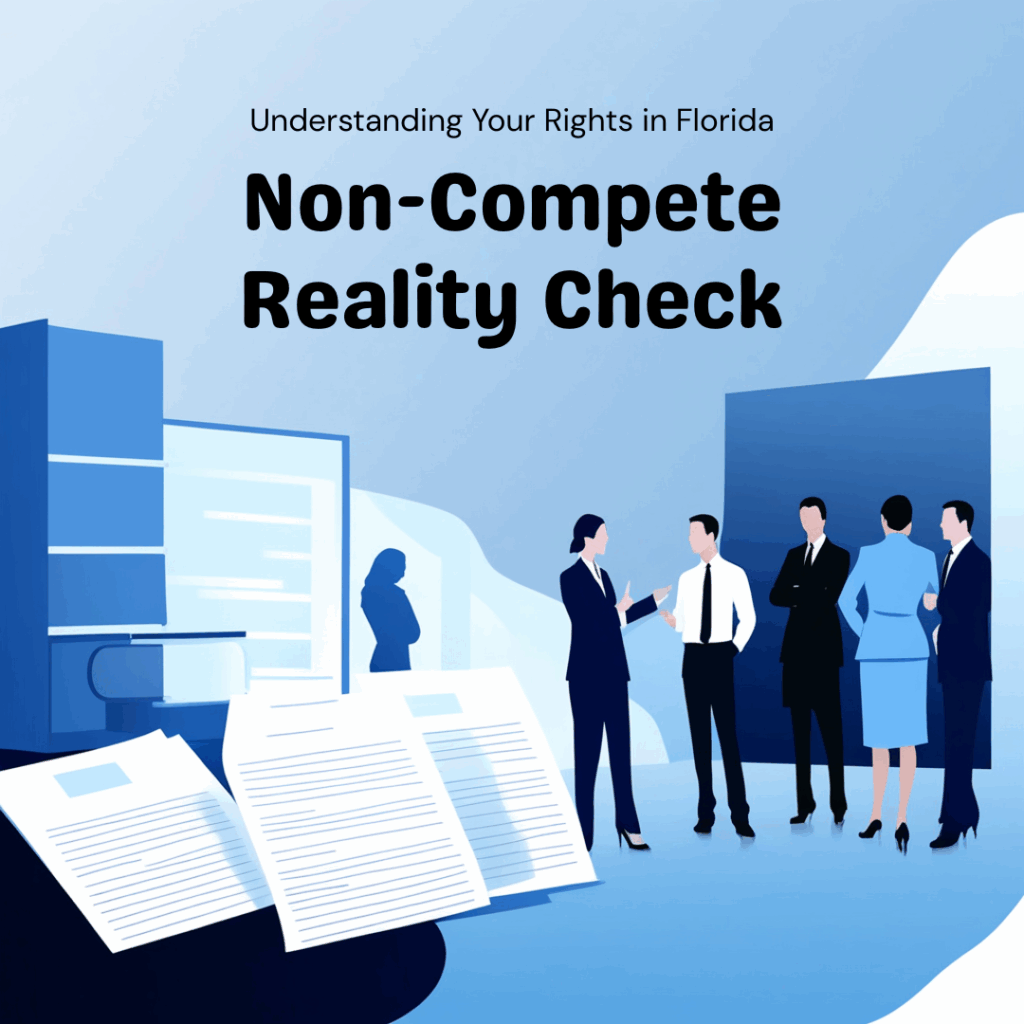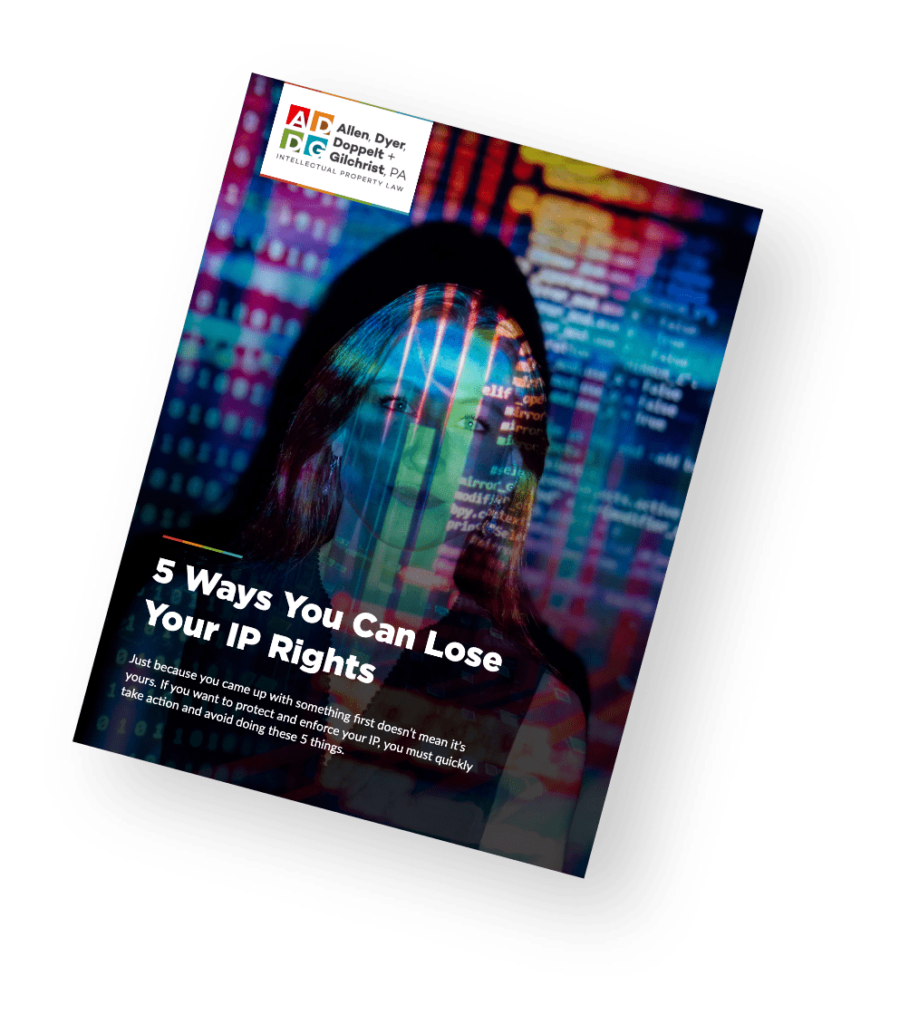Non-compete agreements have become increasingly common in employment contracts across various industries. Yet many employees and even some employers harbor misconceptions about their enforceability. Contrary to popular belief, the idea that non-compete clauses are “just restraints of trade” and therefore unenforceable is simply not accurate—especially in Florida.
Recent Federal Developments: The FTC Rule That Never Was
In April 2024, the Federal Trade Commission voted 3-2 along party lines to enact a comprehensive ban on non-compete agreements that would have applied to both existing and future employment contracts nationwide. The rule was scheduled to take effect in September 2024, but it faced immediate legal challenges.

Federal courts in Texas and Florida’s Middle District enjoined the rule, with judges finding that the FTC exceeded its rulemaking authority and violated the Supreme Court’s “Major Questions” doctrine. Following the change in administration and FTC personnel, the commission officially withdrew its appeals on September 5, 2025, effectively ending the federal effort to eliminate non-competes.
Rather than pursuing blanket prohibition, the FTC has shifted to targeted enforcement actions against specific “unfair and anticompetitive” non-competes under existing FTC Act provisions. Recent examples include actions against the largest pet cremation business in the United States and warning letters to healthcare employers.
Florida’s Pro-Employer Approach
While many states have moved to restrict or ban non-compete agreements, Florida has taken the opposite approach. The state already had one of the most employer-friendly non-compete statutes in the country—so much so that a New York Court of Appeals once called it “truly obnoxious” for its nearly exclusive focus on employer interests.
The Existing Florida Law (Since 1996)
Florida Statute §542.335 requires that non-compete agreements:
- Be in writing and signed by the restricted party
- Protect legitimate business interests
- Be reasonable in time, area, and line of business
Legitimate business interests include:
- Trade secrets
- Valuable confidential business information
- Substantial relationships with customers, patients, or clients
- Customer goodwill associated with trademarks, locations, or trade areas
- Extraordinary or specialized training
The statute includes presumptions of reasonableness for duration:
- 6 months or less: Presumed reasonable for employees
- More than 2 years: Presumed unreasonable for employees
- Up to 3 years: Presumed reasonable for business sales
- Up to 5 years: Presumed reasonable when protecting trade secrets
Florida’s New CHOICE Act
As of July 1, 2025, Florida added an additional layer of protection for employers with the Florida CHOICE Act (Contracts Honoring Opportunity Investment Confidentiality and Economic Growth Act), codified at Florida Statutes §§542.41-542.45.
This new law applies to contracts signed on or after July 1, 2025, and covers two types of agreements:
1. Enhanced Non-Compete Agreements
- Employee must acknowledge in writing they will likely receive confidential information
- Employer must provide 7 days written notice of right to seek counsel
- Enforceable up to 4 years (longer than the previous statute)
- Geographic scope need not be “reasonable”
- Mandatory preliminary injunctions for violations
2. Garden Leave Agreements A new concept in Florida law, these agreements allow parties to agree in advance to provide express notice before ending employment. The employee agrees not to quit during the notice period, and the employer agrees to continue paying salary and benefits. After 90 days, the employee can stop working but continue receiving pay, or work elsewhere with the employer’s permission.
Who Is Covered Under the CHOICE Act?
The new law applies to employees and independent contractors who either:
- Work primarily in Florida, OR
- Work for employers with principal places of business in Florida (if the agreement is governed by Florida law)
Salary Requirements: The employee must earn more than twice the annual mean wage in the county where the employer’s principal place of business is located, or if not in Florida, then in the county of the employee’s residence. Based on 2023-2024 data, this threshold ranges from approximately $80,000 to $150,000 depending on the county.
Notable Exemptions: Healthcare practitioners (doctors, nurses, dentists, pharmacists, chiropractors, mental health counselors) are exempt from the CHOICE Act.
Special Rules for Lawyers
Legal professionals face unique restrictions. Both Florida Bar Rule 4-5.6 and ABA Model Rule 5.6 generally prohibit lawyers from entering into non-compete agreements that restrict their ability to practice after employment ends.
Limited exceptions include:
- Restrictions affecting retirement benefits
- Restrictions in the sale of an entire law practice
- Restrictions on in-house counsel for non-legal work
The Reality of Enforcement
Despite employee assumptions to the contrary, non-compete agreements are regularly enforced when properly written to comply with applicable state law. Employers can seek both injunctive relief and monetary damages against departing employees and their new employers.
Key enforcement advantages in Florida include:
- Courts can “blue pencil” overly broad restrictions to make them reasonable rather than void them entirely
- Violation creates a presumption of irreparable harm
- Courts cannot consider individual economic hardship to the employee
- Prevailing parties may recover attorney’s fees and costs
National Landscape
As of 2025, only six states ban non-competes almost entirely: California, North Dakota, Oklahoma, Minnesota, Wyoming, and Montana. Several other states allow enforcement only for employees earning above certain salary thresholds (typically $75,000-$127,000).
Florida’s approach stands in stark contrast to this trend, with the state now acknowledged to have the most employer-friendly non-compete law in the country.
Practical Implications
For employers, Florida’s dual statutory scheme provides powerful tools for protecting legitimate business interests. The CHOICE Act’s mandatory injunction provision is particularly significant for qualifying agreements.
For employees, the key takeaway is clear: don’t assume non-compete agreements are unenforceable. In Florida’s pro-employer legal environment, properly drafted non-competes will likely be enforced. Employees facing these restrictions should carefully consider their implications and seek legal counsel when necessary.
The landscape of non-compete law continues to evolve, with states taking divergent approaches. While federal intervention has stalled for now, the tension between protecting legitimate business interests and preserving worker mobility remains a central issue in employment law.
This article provides general information about non-compete law and should not be considered legal advice. Specific situations require individual analysis by qualified legal counsel.
About the Author:
Ava Doppelt is Board Certified by the Florida Bar in Intellectual Property Law. She manages trademark and copyright portfolios, and has substantial litigation experience in federal and state courts and administrative agencies, advising clients on trademark, publishing, entertainment, and licensing, franchising, and copyright matters.

Share This



